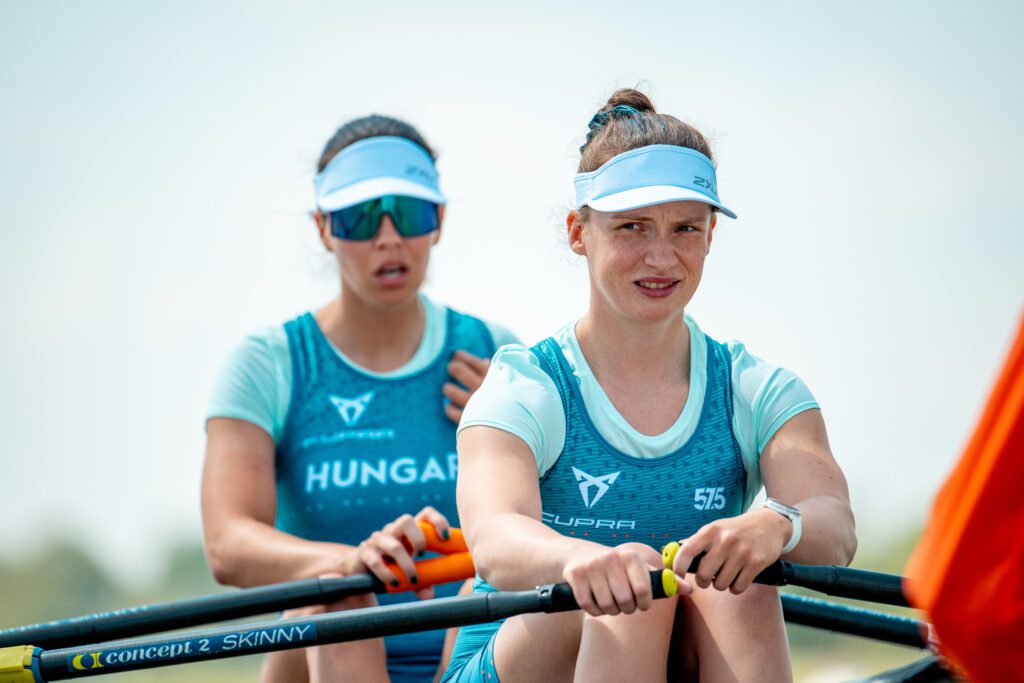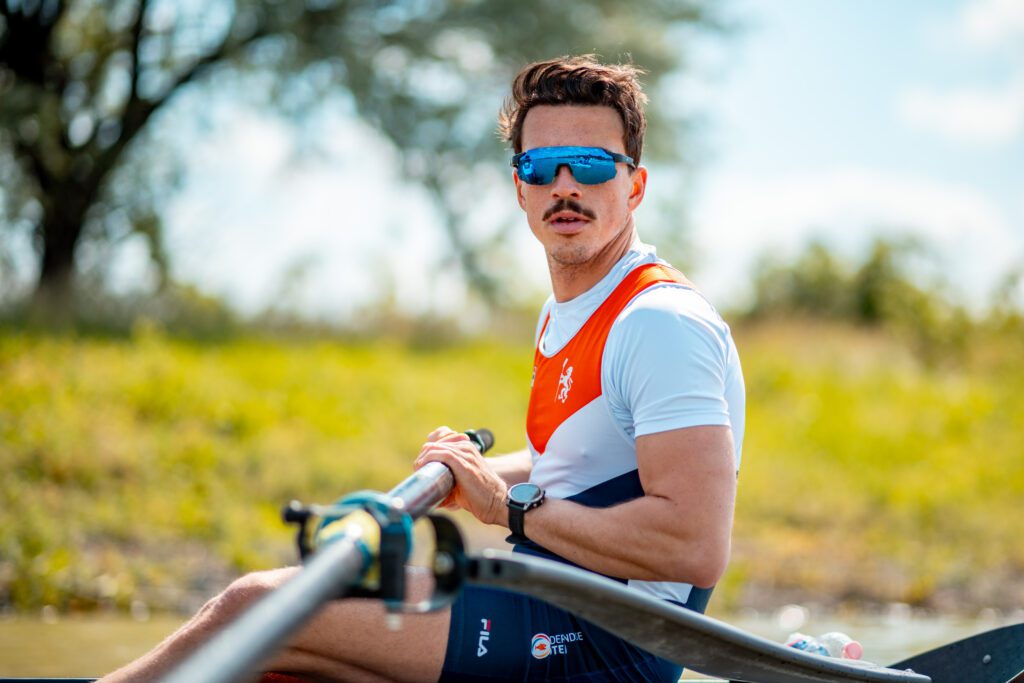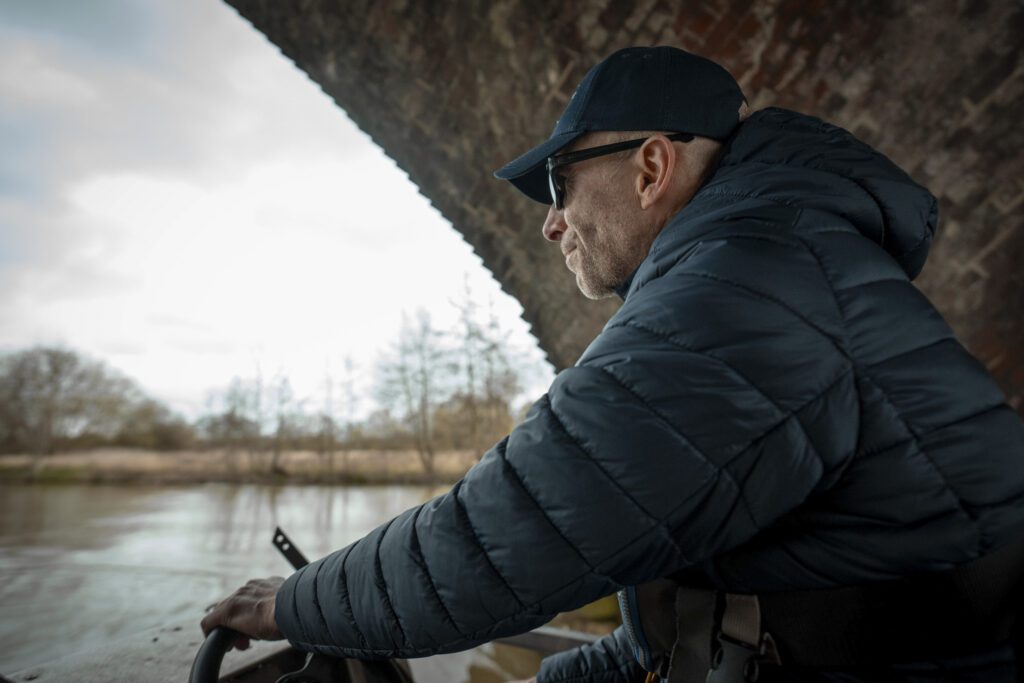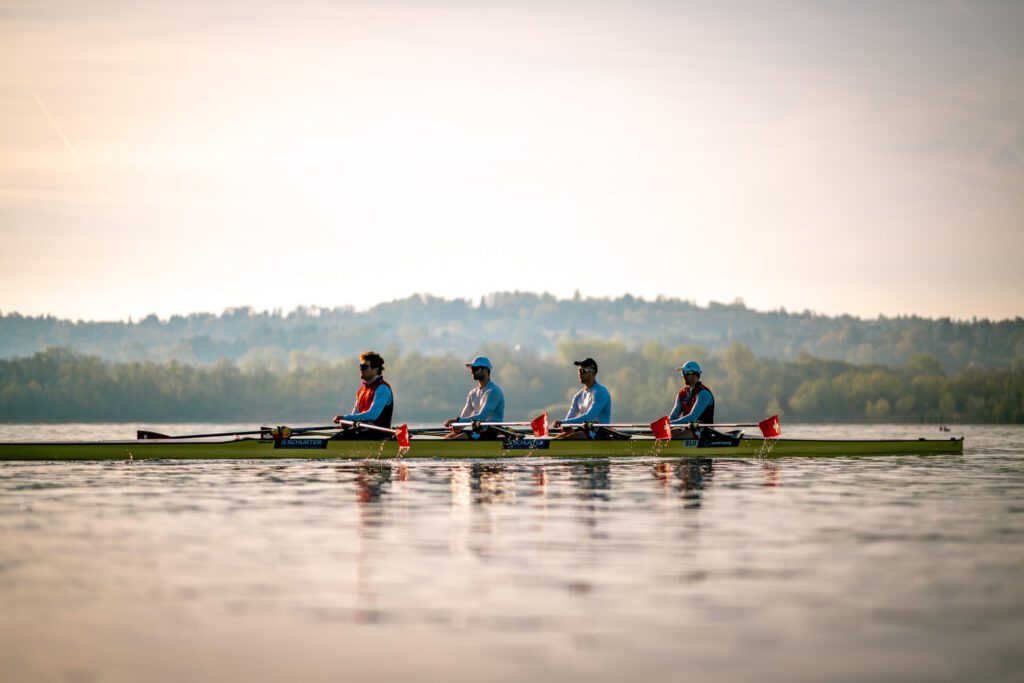Austrian rowing’s leading lady, 29-year-old single sculler Magdalena Lobnig, never intended to continue rowing after Rio 2016. If it hadn’t been for her disappointing sixth place finish in the Olympic final – immediately putting pay to any retirement plans and setting her instead firmly on a path to Tokyo – she may have never have grown into one of the world’s fastest woman on the water.
In the three years since that crushing defeat on the Lagoa, Lobnig has transformed into the most consistent podium finisher in the increasingly tight and competitive field of women’s international single sculling. She has amassed no fewer than nine medals from a total of 11 international events raced since Rio.
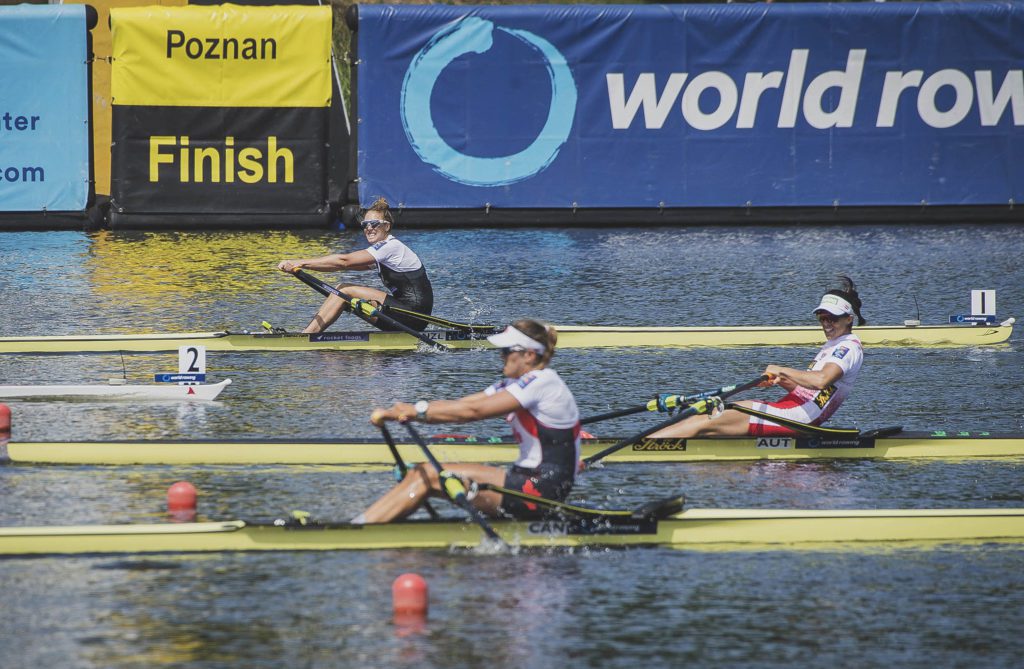
Photo Magdalena Lobnig (right of picture) at 2019 World Rowing Cup II, Poznan, Poland.
Credit Benedict Tufnell
“I feel like it has never been so hard as it now”
Magdalena Lobnig
With just three weeks to go before she attempts to secure a qualification spot for Tokyo – in front of a home crowd at the world championships in Linz – I catch up with her as she looks to continue her impressive medal haul. “I feel like it has never been so hard as it now,” Lobnig confides, speaking on the phone after her second training session that day. She is referring to the level of competition currently in the women’s single scull. “Just making it to an A final, let alone medalling is really difficult in a field as tight as the one we have at the moment – there are just so many good people.”
She has a point. With Emma Twigg returning to the fold this season after two years of retirement, joining the likes of Gmelin, Puspure, Zeeman, Thornley – any of whom could be seen as serious medal contenders next summer – it’s starting to look crowded at the top of the field.
“A lot of us are at the same level of ability and all the races now are so close, fractions of seconds are making the difference between winning and coming fourth. Sanita [Puspure] told me that while she was on the start line at the European champs this year, she looked at her competition to the left and right of her and just thought ‘Shit, shit, shit, shit – they’re ALL really fast!’”
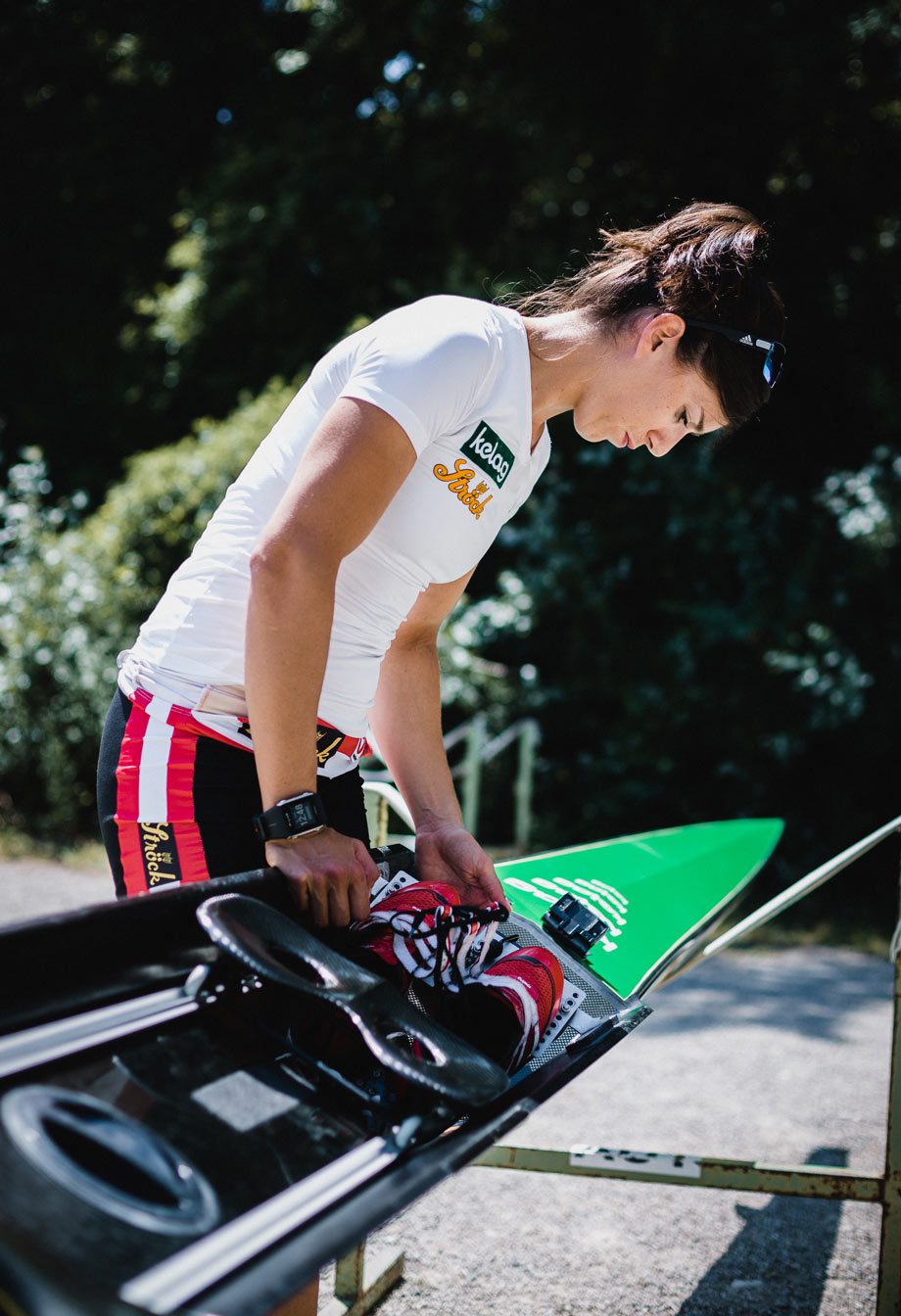
Credit GEPA
“Rio was definitely a turning point”
Magdalena Lobnig
“Rio was definitely a turning point” she continues, when I ask how Lobnig has maintained such consistent medal-winning form in an otherwise wholly unpredictable few years in the women’s single.
“I have been a much better athlete since 2016. I was very unhappy after my final race at the Olympics – I was going for more and wasn’t able to produce it in the final. After that I just became a lot more stable and consistent in my training. I got healthier too and missed less training due to illness. Every winter in the lead up to Rio it felt like I was ill every month. I lost out on so much training. I had problems with my sinuses and my teeth. So I wore braces for two years and had my sinuses sorted and since Rio I haven’t had any of the same issues.”
The love affair with rowing began at school for Lobnig, while aged 14. “They offered various non-compulsory sports and rowing was one of them,” Lobnig explains. “My sister and I were curious because we lived close to the lake where the rowing club is and we always saw the rowers going up and down so when given the chance we tried it together and we both fell in love with it.”
A naturally athletic child who had been competitive in both tennis and track and field before stepping into a boat, Lobnig proved to be a fast learner. “It was when I raced at my first regatta – and won – that I realised I could be good at this. From that moment I knew wanted to go all the way with it.”
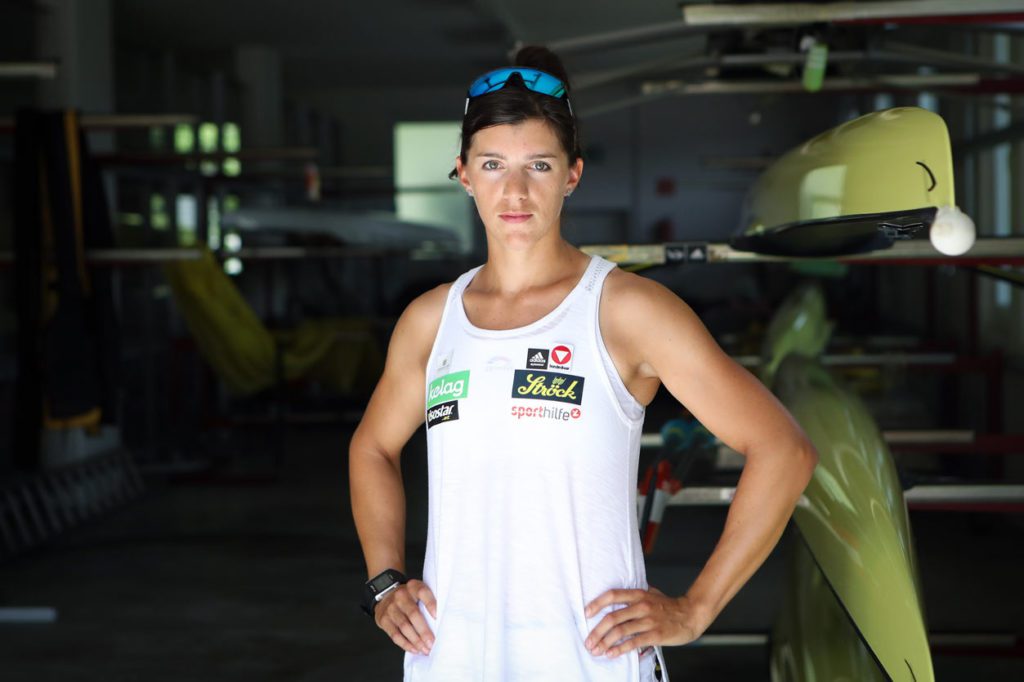
Credit GEPA
Just two years later Lobnig was representing her country at the junior world championships in Amsterdam in 2006, where she won bronze in the JW4x. She has raced at a World Rowing championships – be it junior, U23 or senior – every year since.
“After school I spent a year working for my parents’ company while training and then I took a rowing scholarship to Clemson in the US when I was 19. But I stopped and came home after just three weeks,” says Lobnig. “I was just so motivated to go to the world championships and the Austrian federation had told me I couldn’t if I was studying in America. Clemson was great and treated me really well, but I had to follow my heart and that was to row at the world championships.”
For the next seven years Lobnig raced exclusively in the double or quad for Austria until in 2013 she decided she was ready to go it alone.
“I always wanted to try the single,” she tells me. “I wanted to see how I could do on my own. The first domestic regatta I did in Austria in 2013 showed I had good speed. Then I had to really prove myself to the federation, because up till then they always believed the double should be the priority boat. I was determined to show I could do it by myself and didn’t have to rely on anyone else.” Lobnig went on to win silver in her first international race in the single that season, at the 2013 European championships in Seville.
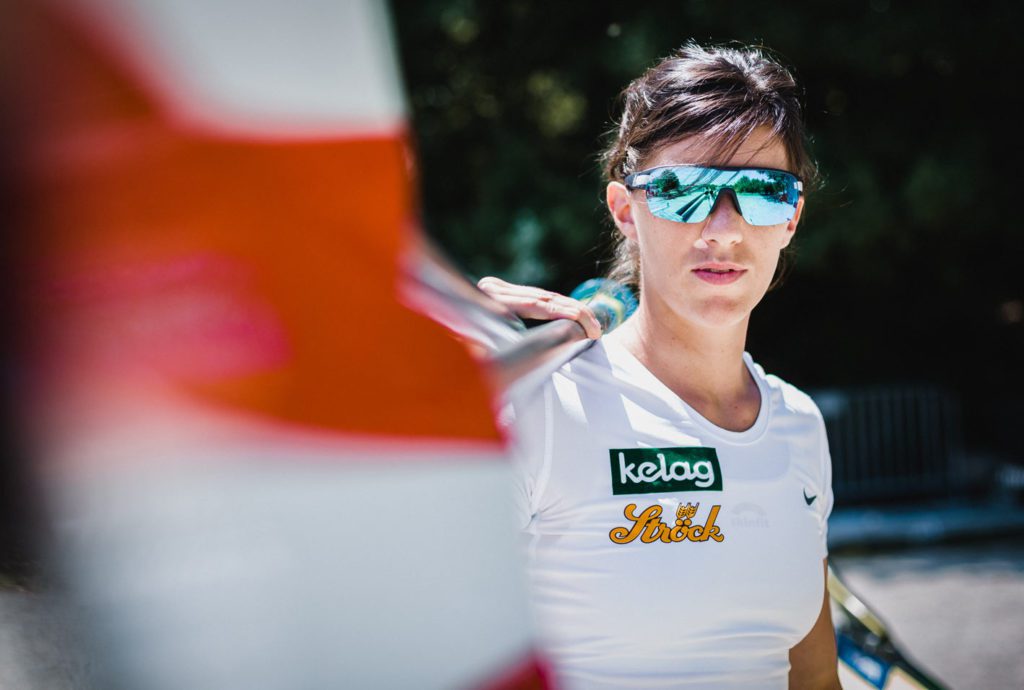
Credit GEPA
Does she miss the camaraderie of being in a crew, rowing with teammates? “Sometimes, especially this year,” says Lobnig. “I realise that I need to have variety and mental stimulation in my training so I have raced and trained in the double quite a lot with my sister this year. I enjoy doing it because you are always alone in the single and always working on the same aspects of your technique, but training in the double feels very different and gives you a load of new things to think about and work on.”
While recent results, notably a silver medal at world cup II in Poland, suggest it is business as usual, behind the scenes, 2019 has been anything but a smooth season for Lobnig. “I don’t have a close coach at the moment, I do most of the work on my own now,” she confides. “My coach quit quite suddenly and unexpectedly this year, just three weeks before the start of the season. It was a bit of a disaster for Austrian rowing. We had worked together for the last seven years and had a lot of success together so I am very thankful to him for that, but it was very difficult when he quit without warning. At the moment we have no coach in the south of Austria where I train. The national head coach oversees what I am doing, but he is spread between all three of our national training centres so I don’t see him a lot. Even so, I actually quite enjoy training on my own, it’s a lot of freedom for me.”
Lobnig now has a home world championships to look forward to in Linz at the end of August. “It can be very nice, mostly flat water in the summer,” says Lobnig. “I got to race the junior world championships in Ottensheim in 2008 also, but I certainly feel the pressure now. There are a lot of Austrians who will want to see me do well and at this world championships there is Olympic qualification at stake too – there is a lot riding on it!”
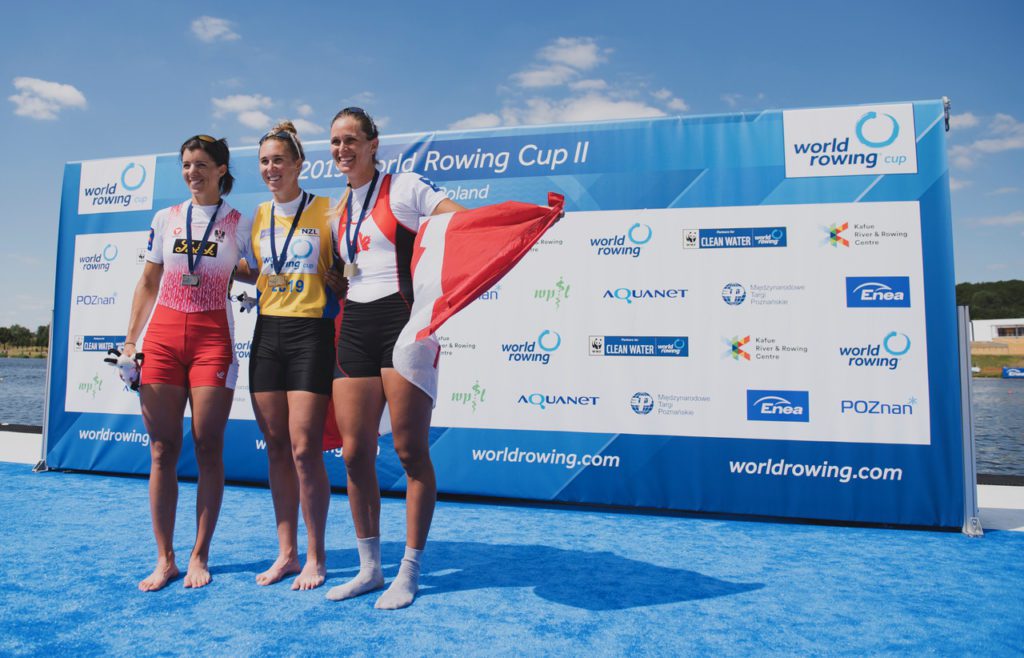
Photo Lobnig (left of picture) at 2019 World Rowing Cup II, Poznan, Poland.
Credit Benedict Tufnell
There is, Lobnig believes, still more for her to learn. “I still feel like I have more potential. That became especially clear after my coach quit this year. I have started to work with lots of different coaches and have got feedback that I haven’t heard before, simply because I have had fresh eyes looking at me. That has actually been very beneficial. It was dramatic when my coach quit but I am now open to hearing new advice. When you have one coach for a long time you always hear the same things, but now there are parts of my stroke I am working on that I had never thought about before. I just want to get the most out of my body and my abilities, to be the best athlete that I can be in Tokyo, and if I do that then I think anything is possible. So that’s the plan, that’s what keeps me working day to day, just trying to get better and better.”

